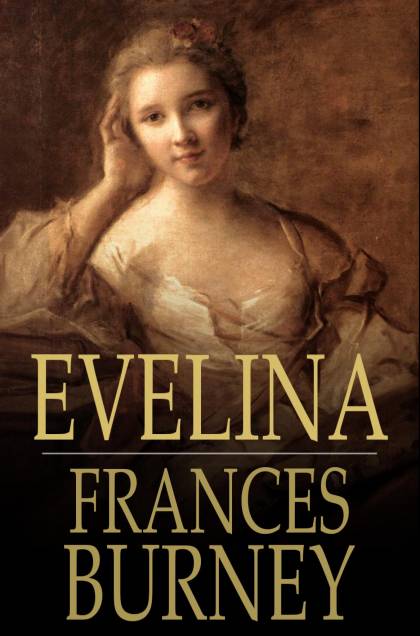Evelina
by Frances Burney
2020-11-19 23:08:36
Frances Burney’s brilliant comic novel depicts a young lady’s entrance into a layered world: the fashionable London season of the nobility and gentry, then a return to another London, the old city and its more “middling sort,&#x...
Read more
Frances Burney’s brilliant comic novel depicts a young lady’s entrance into a layered world: the fashionable London season of the nobility and gentry, then a return to another London, the old city and its more “middling sort,” and finally the restorative retreats of spas and country estates. Set in the mid-1770s Burney captures the opulence of peacetime England seen through the eyes of Evelina, age seventeen, variously described as a “artless young creature, with two much beauty to escape notice,” “great quickness of parts, . . .[and] a certain air of inexperience and innocency that is extremely interesting.” Nobody to the world she enters and without fortune, Evelina seeks a baronet father’s acknowledgement and the rights to a name and inheritance that should be hers. This quest for identity becomes a love story as the beautiful Evelina draws suitors ridiculous to threatening, but among them the thoughtful and attentive Lord Orville. Her unease in new surroundings lends Evelina a keen eye for the missteps of those around her. Despite the hesitancy, fluster, and occasional embarrassment reflected in Lord Orville’s nod to her “fearful excellence,” Evelina learns to navigate a stratified yet fluid social scene, one beset with intricacies that could imperil a woman’s standing. The consummate gift for mimicry that so enriches Burney’s journals carries over to Evelina’s letters to delineate the shades of discourse that would echo through their Georgian settings: gallantry, farcical ranting, mannered affectation, raillery, obsequious pandering, and all the modes of speech adopted by those who are on-stage and playing for high stakes in the scramble that is the beau monde. BookDoors’ EVELINA is the most richly annotated edition of Frances Burney's novel available in print or online. Designed as an eBook, this and the other BookDoors Annotated editions of the Austen novels, of FRANKENSTEIN, WUTHERING HEIGHTS, and JANE EYRE offer you swift, seamless access to information and commentary. At bookdoors.com you will find an extraordinarily versatile search engine that will enhance your pleasure in this and every other novel BookDoors offers. Accompanying your reading of EVELINA is an interpretive discussion, illustrations, a glossary, a selective bibliography, and a brief biography of Burney, whose life was long and eventful.The modest price underscores BookDoors' mission to make these works accessible to an audience of widely different experience and expectations. This series aspires to provide today’s reader with the knowledge an informed reader of that time possessed. For more information and for the opportunity to read freely and to test drive BookDoors’ nimble search engine, please visit bookdoors.com.Frances Burney’s brilliant comic novel depicts a young lady’s entrance into a layered world: the fashionable London season of the nobility and gentry, then a return to another London, the old city and its more “middling sort,” and finally the restorative retreats of spas and country estates. Set in the mid-1770s Burney captures the opulence of peacetime England seen through the eyes of Evelina, age seventeen, variously described as a “artless young creature, with two much beauty to escape notice,” “great quickness of parts, . . .[and] a certain air of inexperience and innocency that is extremely interesting.” Nobody to the world she enters and without fortune, Evelina seeks a baronet father’s acknowledgement and the rights to a name and inheritance that should be hers. This quest for identity becomes a love story as the beautiful Evelina draws suitors ridiculous to threatening, but among them the thoughtful and attentive Lord Orville. Her unease in new surroundings lends Evelina a keen eye for the missteps of those around her. Despite the hesitancy, fluster, and occasional embarrassment reflected in Lord Orville’s nod to her “fearful excellence,” Evelina learns to navigate a stratified yet fluid social scene, one beset with intricacies that could imperil a woman’s standing. The consummate gift for mimicry that so enriches Burney’s journals carries over to Evelina’s letters to delineate the shades of discourse that would echo through their Georgian settings: gallantry, farcical ranting, mannered affectation, raillery, obsequious pandering, and all the modes of speech adopted by those who are on-stage and playing for high stakes in the scramble that is the beau monde.
Less

































